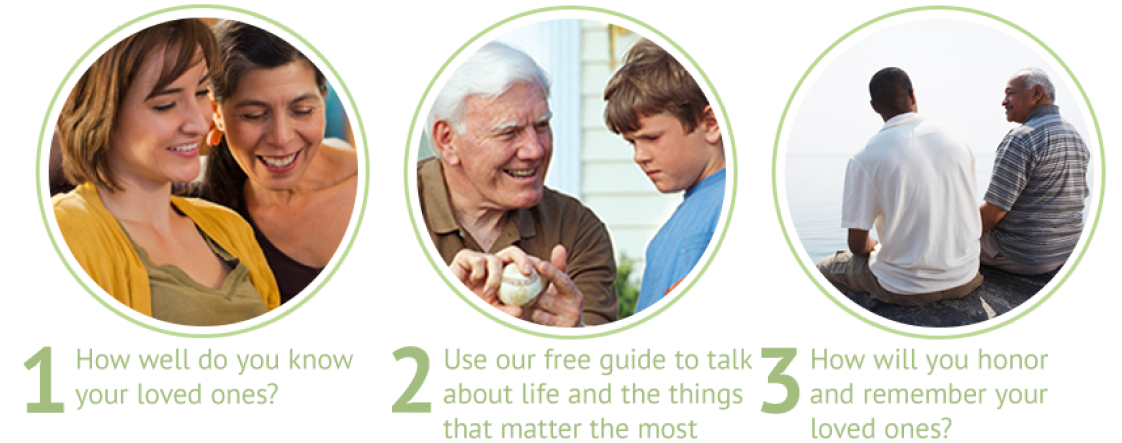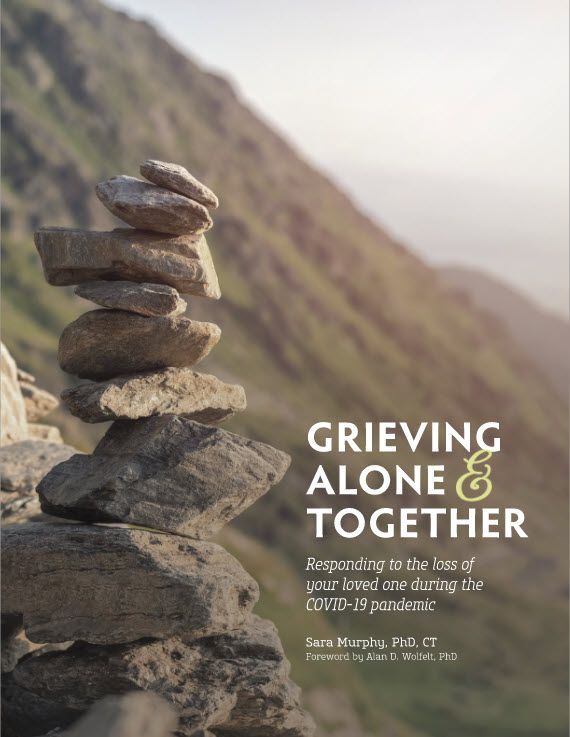Supportive Articles
Have the Talk of a Lifetime
You talk about everything. You share the big events and small victories. But there’s one conversation you probably haven’t had: it’s time to have the talk about how you want to be remembered. It can make the difference of a lifetime.
Sharing stories with those who matter most isn’t just important today; it will be especially significant when it’s time to commemorate a life. Have the Talk of a Lifetime encourages families to have conversations about life and what matters most. These discussions can help families make important decisions about how they wish to remember and honor the lives of their loved ones.
Through meaningful memorialization — that is, taking time to reflect on the unique life of a loved one and remember the difference they made — families and friends take an important step in the journey toward healing after death. Today, individuals and their families have more options for memorializing their loved one at the end of life.
Memorialization is so much more than it used to be. It can reflect a person’s life story, their values, interests, and experiences. It is transformative, healing, and comforting. Meaningful memorialization planning starts when loved ones talk about what matters most: memories made, lessons learned, and how they hope to be remembered.

Life. There's a Lot to Talk About.
Having the talk of a lifetime can make the difference of a lifetime. It can help reacquaint us with our loved ones and help us get to know them in a new and different way. Finding a way to start talking with a loved one may be the most difficult part; however, we might find that once the conversation starts, it may be hard to stop.
You Mattered.
Deep down, most of us want to know that we, in some way, made a difference in this world — that we mattered to someone, and that after we die, we will be fondly remembered by those who knew and cared for us. When grieving a death, memorialization — taking time to honor the life of a loved one in a meaningful way — and remembering the difference a loved one made in our lives can be an important step in the journey toward healing.
Some of the following questions can help when making funeral arrangements: “What is your proudest achievement?” / “What was the one piece of advice you received from your parents or grandparents that you never forgot.” / “Tell me about the most memorable summer you had growing up.” / “Tell me about your favorite teacher; what did you learn from him or her?”
Make the Difference of a Lifetime
You can have the talk of a lifetime with anyone you hold dear — your parents, grandparents, aunts and uncles, a spouse. It can happen anywhere you and your loved one are most comfortable — over a meal, at home, on a walk, while playing a game. The talk can be between you and your loved one, or you could include others, like family or friends. Your conversation can take place at any time — not just at the end of life.
Youth and Funerals
Understand the important role funerals and memorialization play in the lives of youth
In collaboration with funeral service professionals as well as grief and bereavement experts, the Funeral Service Foundation was able create these resources to help families and caregivers understand the role that grief and funerals play in the lives of youth. Please use and share this resource.
Grieving Alone & Together
COVID-19
Grieving Alone & Together by Sara Murphy, PhD, CT covers the unique position loss during a pandemic puts families in, particularly when it comes to funeral planning, memorializing at a safe distance and supporting mental and physical health during grief.
Use and share this resource with those COVID has impacted the most.
Click the image to view the PDF


